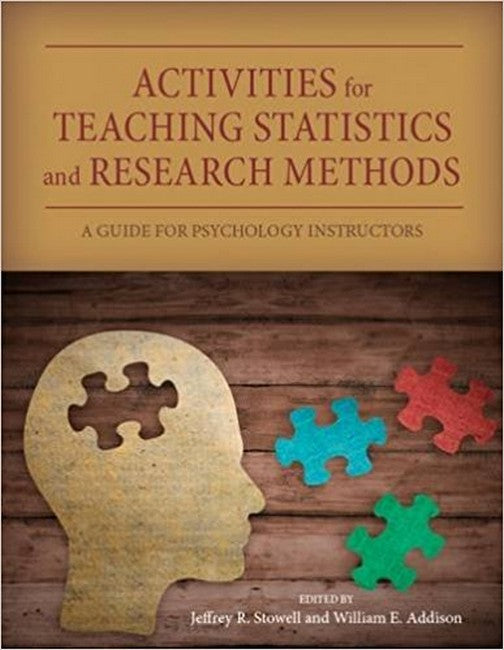Description
Contributors Acknowledgments Introduction I. Statistics Reducing Anxiety in the Statistics Classroom How to Lie With the Y-Axis Summarizing Data Using Measures of Central Tendency: A Group Activity How Fast Is Your Internet? An Activity for Teaching Variance and Standard Deviation Getting Dicey: Thinking About Normal Distributions and Descriptive Statistics A Low-Anxiety Introduction to the Standard Normal Distribution and Measures of Relative Standing Using the Heat Hypothesis to Explore the Statistical Methods of Correlation and Regression Active Learning for Understanding Sampling Distributions Testing Students for ESP: Demonstrating the Role of Probability in Hypothesis Testing Using a TV Game Show Format to Demonstrate Confidence Intervals Real-Life Application of Type I and Type II Decision Errors Factors That Influence Statistical Power An Interdisciplinary Activity for p Values, Effect Sizes, and the Law of Small Numbers II. Research Methods An Activity for Teaching the Scientific Method Linking Identification of Independent and Dependent Variables to the Goals of Science Everything Is Awesome: Building Operational Definitions With Play-Doh and LEGOs A Demonstration of Random Assignment that Is Guaranteed to Work (95% of the Time) Identifying Confounding Factors in Psychology Research Demonstrating Experimenter and Participant Bias The Most Unethical Researcher: An Activity for Demonstrating Research Ethics in Psychology The Ethics of Behavioral Research Using Animals: A Classroom Exercise Demonstrating Interobserver Reliability in Naturalistic Settings Using a Classic Model of Stress to Teach Survey Construction and Analysis Using Childhood Memories to Demonstrate Principles of Qualitative Research Using a Peer-Writing Workshop to Help Students Learn American Psychological Association Style Index About the Editors

